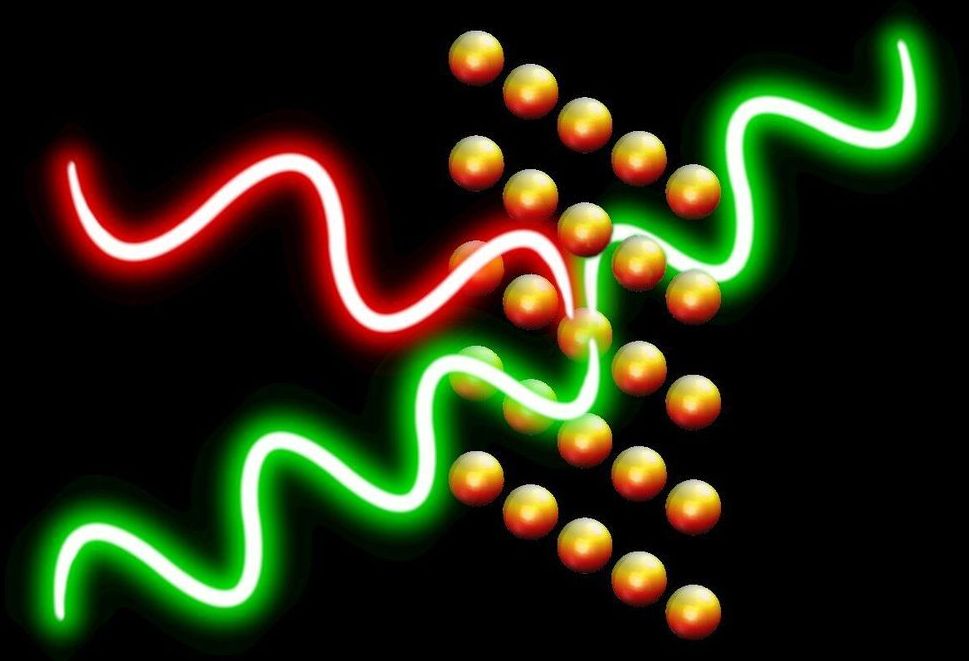:oooo.
Metasurfaces are artificial materials designed at the nanoscale, which can control the scattering of light with exceptionally high precision. Over the past decade or so, these materials have been used to create a variety of technological tools ranging from sensors to lenses and imaging techniques.
A research team led by Mikhail Lukin at Harvard University has recently proposed a new type of metasurface that can control both the spatiotemporal and quantum properties of transmitted and reflected light. In a paper published in Nature Physics, the team showed that realizing a quantum metasurface is possible and could be achieved by entangling the macroscopic response of thin atom arrays to light.
“Quantum metasurfaces are an entirely new type of materials designed atom by atom, which enable applications such as quantum computation with photons,” Rivka Bekenstein, the lead author of the recent paper, told Phys.org. “We combined a state-of-the-art technique for manipulating the state of many atoms by long-range interactions (i.e., Rydberg interactions) with a recent discovery of how a single sheet of atoms can reflect light. We identified an architecture that can be realized in the laboratory, in which a single layer of atoms can act as a switchable quantum mirror.”
